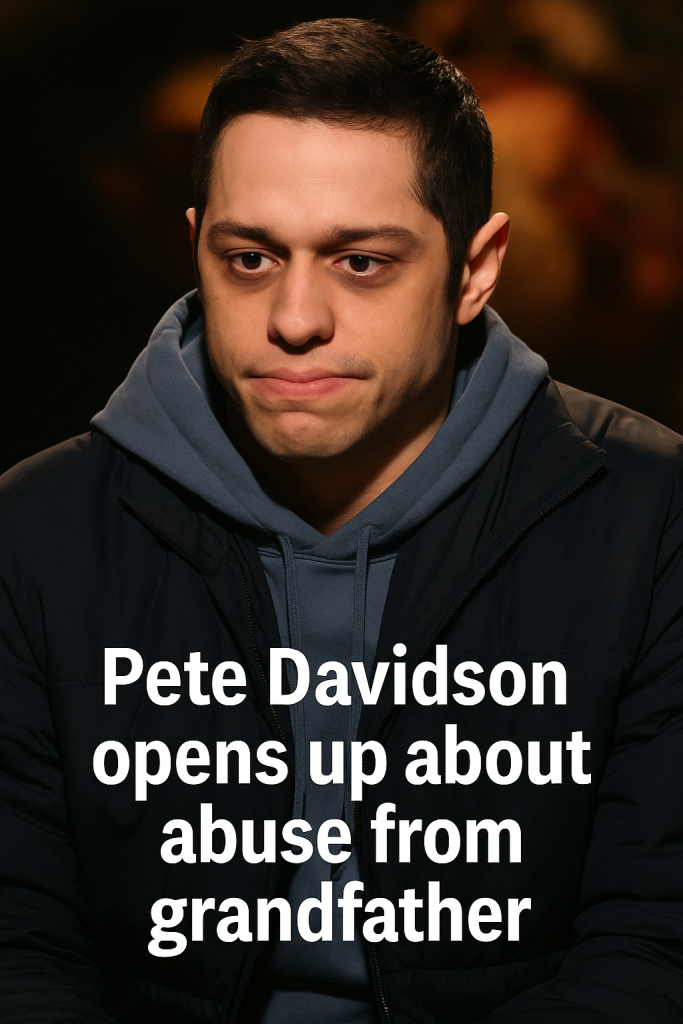In a shocking and deeply personal revelation, comedian and actor Pete Davidson has opened up about the abuse he suffered from his grandfather, expressing harsh emotions that have left fans and followers stunned. In recent interviews, Davidson admitted he is “thrilled” to see his grandfather “die slow,” a statement that underscores years of trauma and pain behind his public persona.
Davidson, known for his candid and often raw takes on mental health and hardship, has never shied away from sharing difficult parts of his life. However, this latest disclosure marks one of the most intense accounts yet. The exact nature of the abuse has not been fully detailed, but Davidson made clear that it was significant enough to shape his feelings strongly against his grandfather.
During a recent conversation, Davidson described the complicated emotions tied to his family history. While many might anticipate feelings of forgiveness or reconciliation, Davidson’s remarks reveal he is still grappling with deep resentment and hurt. Saying he is “thrilled” to see his grandfather’s demise, Davidson provided a rare glimpse into the lasting scars that abuse can leave, even decades later.
This raw honesty offers insight into how childhood trauma can haunt survivors throughout their lives, affecting relationships and perspectives on mortality and justice. Davidson’s forthrightness has sparked a dialogue about the impact of family abuse and the importance of confronting painful histories, no matter how uncomfortable.
Fans have responded with a mixture of empathy and concern after hearing Davidson’s words. Many praised his bravery in speaking out candidly, highlighting how celebrities sharing personal trauma can reduce stigma around abuse and mental health struggles. Others have acknowledged the complexity of Davidson’s feelings, recognizing that forgiveness isn’t always immediate or possible for survivors.
Davidson’s comments arrived amidst a broader conversation about abuse survivors reclaiming their narratives and speaking out against those who harmed them. This cultural shift encourages victims to seek healing and justice on their terms instead of conforming to societal expectations of forgiveness.
Moreover, Davidson’s revelation adds to a growing awareness of the often hidden nature of abuse within families and the nuanced emotional responses it can provoke. Abusive relationships leave lasting wounds that influence personal development and emotional well-being, something Davidson’s public statements have powerfully illustrated.
As fans and mental health advocates continue to discuss the implications of Davidson’s disclosure, it serves as a reminder of the resilience required to confront painful memories and the complexity of emotions tied to those who have caused harm.
Pete Davidson’s candid discussion about his abusive grandfather not only sheds light on his personal journey but also encourages a more compassionate understanding of abuse survivors’ experiences and reactions.



